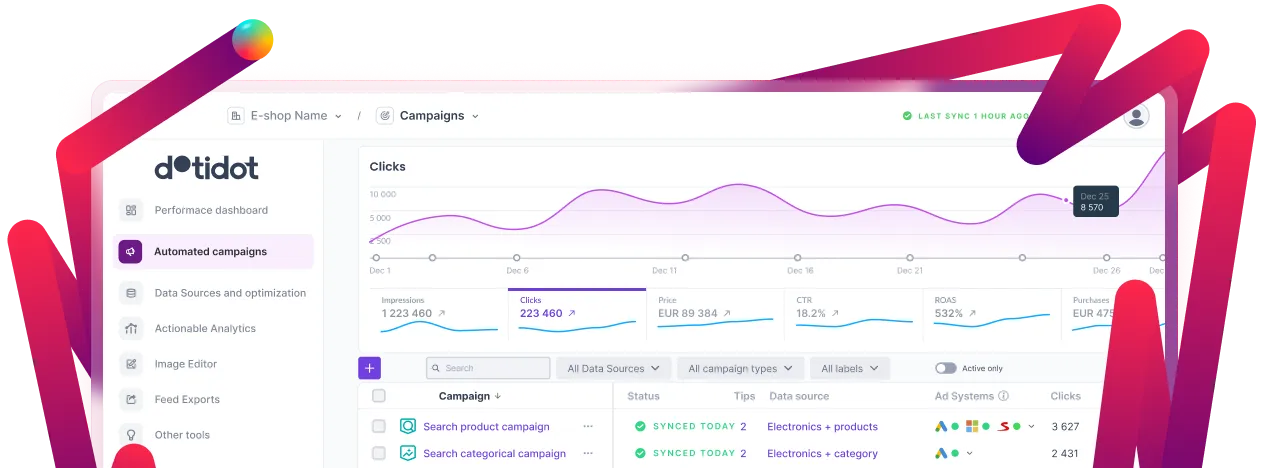Book a call with us







This month Google Tag Manager has introduced a new Google tag to replace the existing GA4 Configuration tag. With this update, tag management is made simpler by using a single Tag ID, reusable settings variables are now possible at both the configuration and event levels, and Google products are better integrated with one another.
The GA4 configuration tags you presently have deployed will be upgraded to the Google tag automatically. You don't need to do anything; your measurement and capabilities will continue to function as they have.
Furthermore, three new settings variables—the Configuration Settings variable, User Properties variable, and Event Settings variable—will soon be available to let you create event parameters and tag settings in bulk. (source)

Now, established links between Google Analytics 4 properties and AdSense accounts can be viewed and removed. You can see it on the Admin page under AdSense Links after linking your AdSense account to a Google Analytics 4 property. (source)
A new functionality has been added to Google Analytics for users who have enabled consent mode. By simulating the behavior of users who reject analytics cookies based on those who accept them, it recommends enabling cookieless pings that can assist close data gaps using machine learning. (source)
Google Analytics 4 now offers a new Checkout journey report, providing data on the number and percentage of users who start and complete the checkout funnel on an ecommerce website or app. This report is available in the Monetization or Drive online sales categories, and can be added by administrators or editors. (source)
The BigQuery connector now offers a new user data export, allowing users to create unique tables with user-scoped fields like current audiences, lifetime value, predictive scores, user properties, and device and geographic details. Enable this export from the BigQuery Links page in the GA4 Admin. (source)
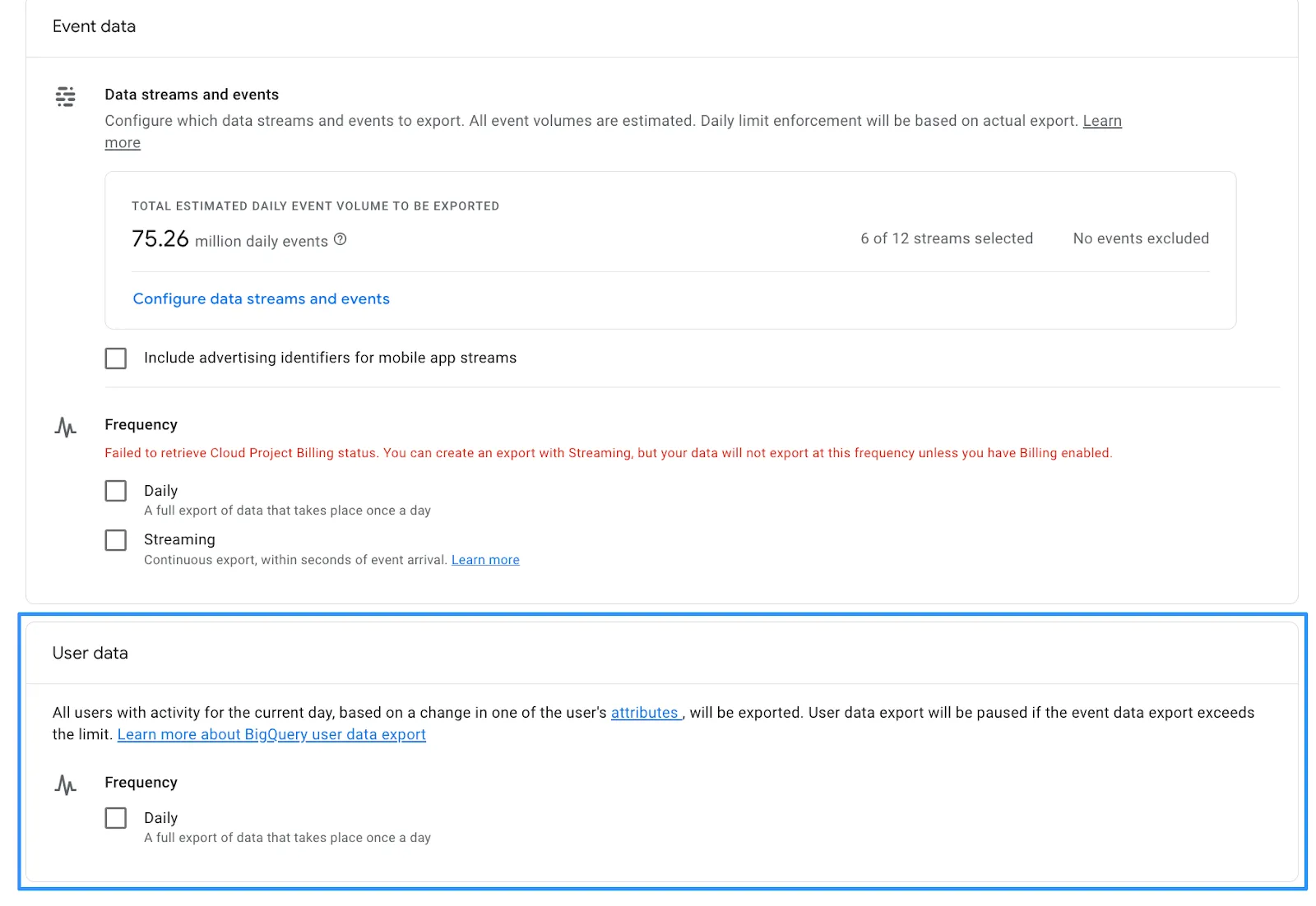
A new regulation known as Limited advertising Serving is being implemented to enhance the advertising' clarity and lower the possibility of scams. To foster user confidence and prevent deceptive advertising, the policy will initially restrict the reach of new or less well-known marketers, particularly when they target certain brands. (source)
Google began requiring advertisers to display their company name and logo on the landing pages of their ads from September 25, 2023. (source)
Automatically created assets is a campaign-level setting that enhances the relevance of search ads by creating tailored headlines and descriptions based on the ad's context, including landing page and existing ads. It improves responsive search ads' ad strength and allows users to remove assets they don't want from their ads. Now available in 8 languages: English, Dutch, French, German, Italian, Japanese, Portuguese, and Spanish. (source)
Google Ads now offers a conversational experience, allowing users to build search campaigns with less effort. The AI generates all campaign needs, including keywords, headlines, and images, with users able to modify suggestions and approve them before deployment. The feature has been tested with advertisers, resulting in time savings and new ideas. Improvements are being made and beta testing will begin in the US and UK in the coming months. (source)

A reminder that effective from October, Google Ads is disabling Enhanced cost-per-click (eCPC) for Shopping campaigns. These campaigns will transition to Manual CPC bidding. Google suggests embracing innovative strategies like Target ROAS or exploring the prowess of fully automated Performance Max campaigns. Advertisers not making any moves will find their campaigns naturally shifting to Manual CPC bidding.
Built on real-time feedback, YouTube is redesigning its streaming interface to better serve users and sponsors. In order to reduce interruptions during long-form content, the platform is adopting new, more engaging ad formats, including 30-second, non-skippable, and shoppable ads. The adjustments improve viewer interaction and provide a more interactive TV experience. (source)
To make it simpler for creators to monetize their content, YouTube is updating its ad controls in YouTube Studio. To maximise income and viewer experience, YouTube will begin to remove specific ad options for pre-roll, post-roll, skippable, and non-skippable advertising on new uploads in November. Mid-roll advertisements, however, will continue to be entirely under author control.
In addition, the platform is offering new display ads and enhanced control over mid-roll advertisements for live streaming. (source)
Google Ads now offers new AI-powered tools on YouTube to boost ad performance. For instance, the creative guidance tool analyzes and detects best practice elements in videos, such as a brand logo, voiceover, video duration, and aspect ratio and then offers actionable recommendations for improvement. Additionally, videos can be trimmed for different durations or created using high-quality templates. (source)
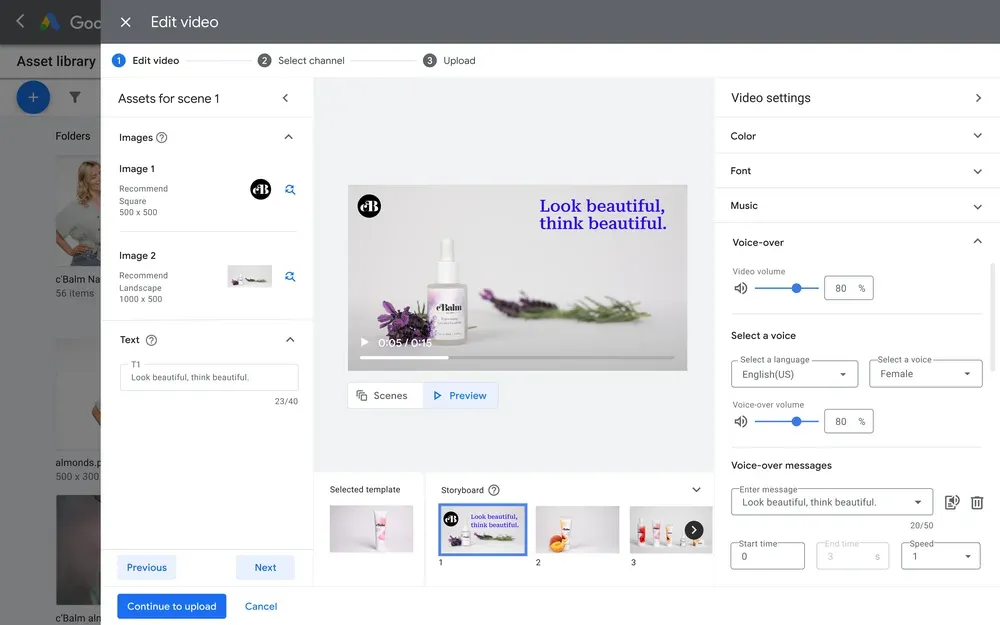
Newly released auto-generated assets for responsive search ads will assist you in producing more relevant ads and scaling your work. (source)
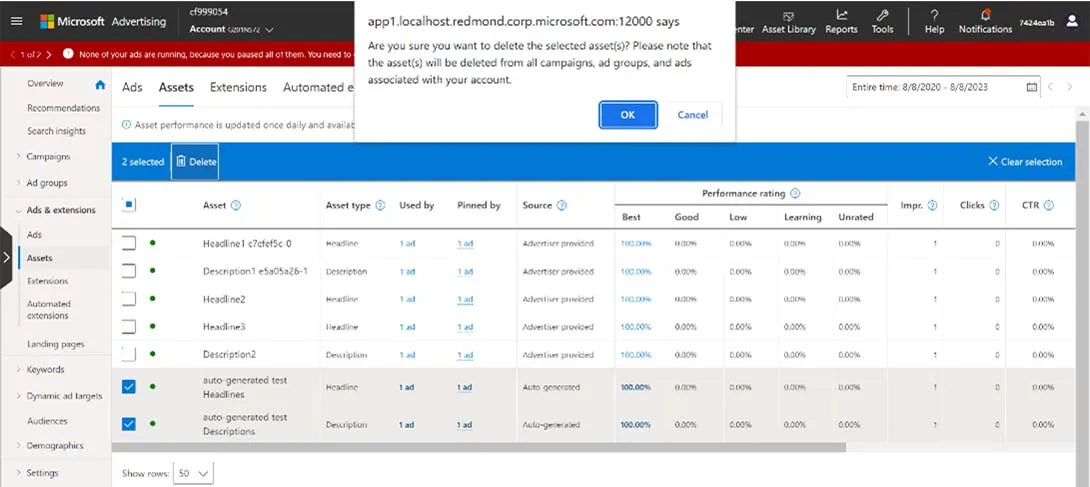
Utilize your current RSA assets to build multimedia ads (MMAs) to streamline the ad creation process. (source)
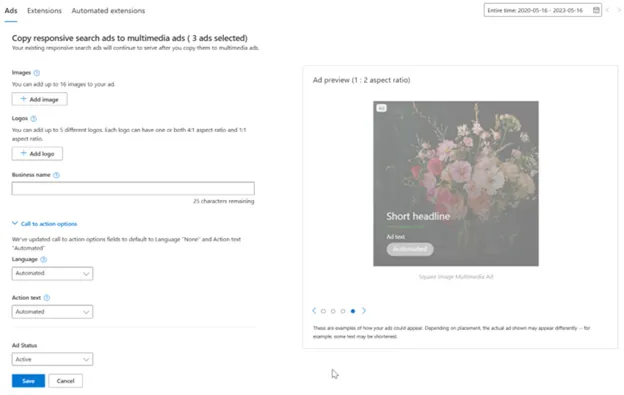
For improved customer match capabilities, new Customer Data Platform connections with Hightouch and Zapier have been released. (source)
Bing Chat has introduced Conversational Ads, a new ad format designed specifically for Chat users. The platform will introduce Compare & Decide Ads, which will provide users with a succinct table of relevant data for comparison and decision-making. This feature will be available across all verticals where relevant feed data is available, including retail, travel, and auto. The platform will be in closed beta in early 2024, and is part of ongoing efforts to tailor ad formats to the unique user experience of search in Chat. (source)

Through its Ads for Chat API, Microsoft Advertising is expanding the reach of its AI Chat Advertising. The first companies to incorporate this technology are Snapchat and Axel Springer, opening up new opportunities for advertisers. With 150 million active users, Snapchat's My AI chatbot will offer Sponsored Links, and Axel Springer's Hey_ on BILD.de intends to link advertisers with its daily traffic of roughly 16–17 million users. (source)
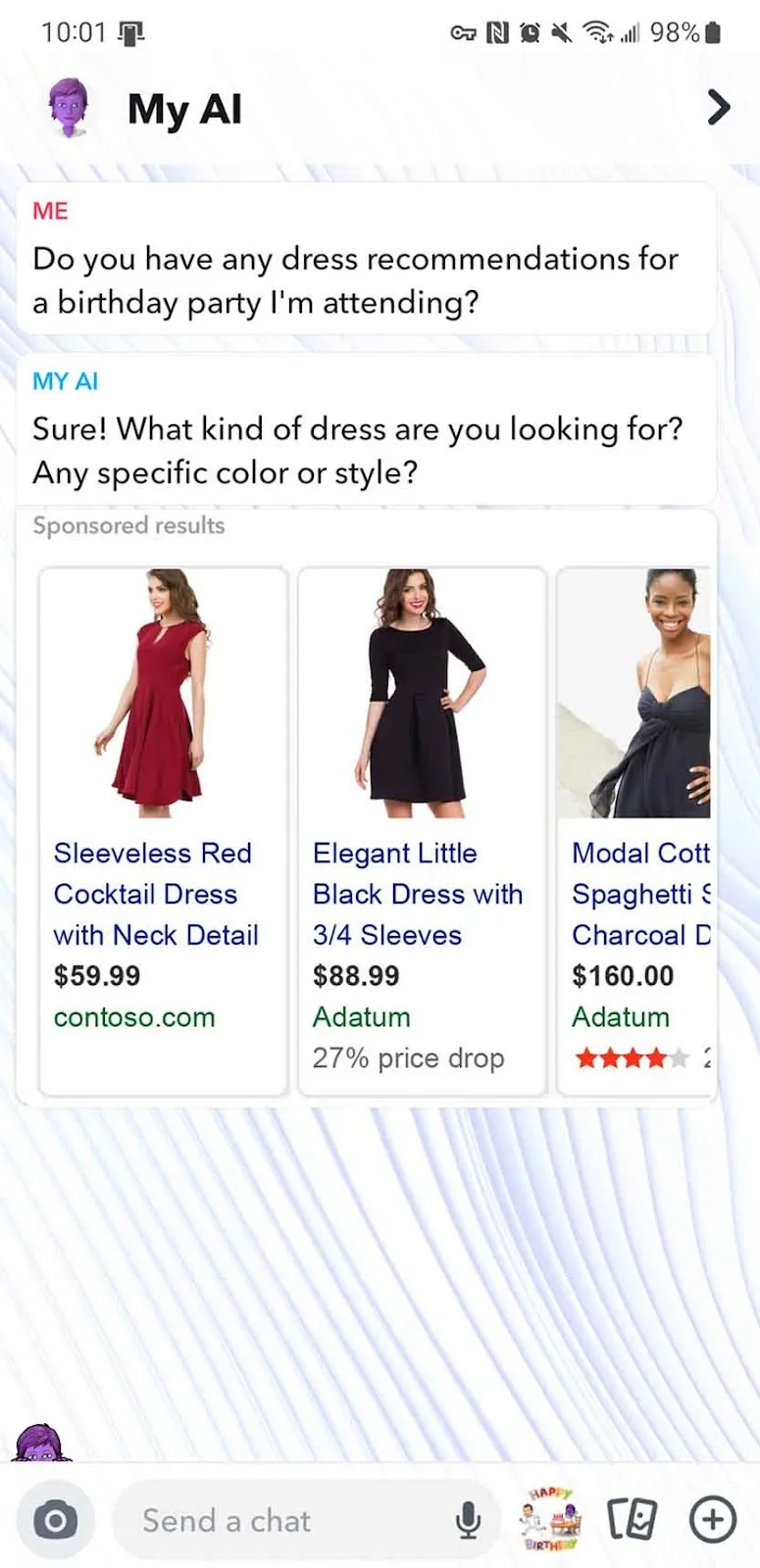
Microsoft has introduced Copilot in its Advertising Platform, a real-time intelligent assistant designed for advertisers and agencies. It uses natural language conversations and generative AI to simplify the platform experience, provide content recommendations, and provide quick help, aiming to help achieve advertising goals. (source)
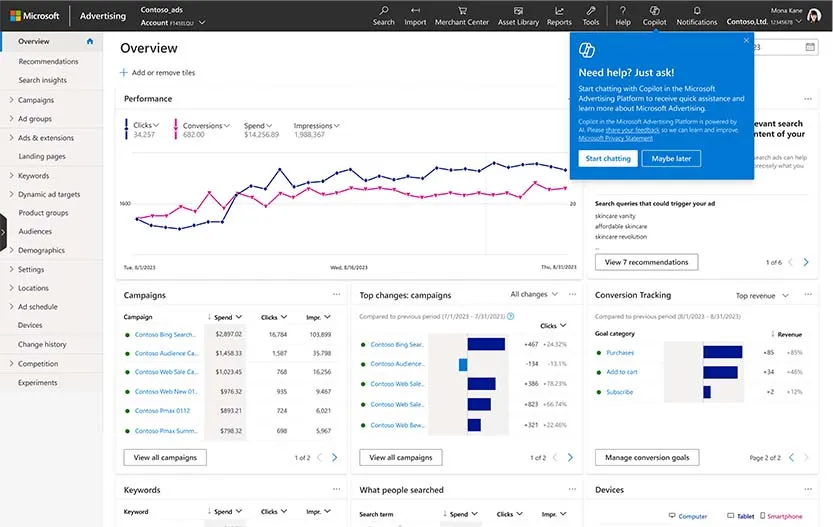

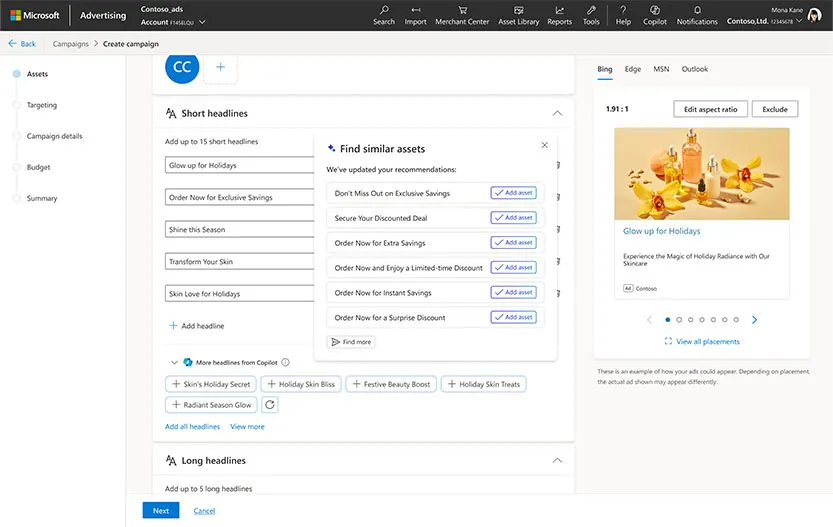
In order to interact with consumers across well-known streaming services and websites, Microsoft Advertising now offers Video and Connected TV (CTV) ad campaigns. For these new ad formats, Microsoft uses its extensive first-party data to offer insightful analysis and precise targeting possibilities. (source)
Facebook has introduced a new feature allowing users to schedule individual ads and set start and end dates for each ad in Advantage+ shopping campaigns. This allows for more creatives while controlling when to run specific ads. Advantage+ shopping campaigns can automatically test up to 150 creative combinations, aiming to deliver the highest performing ads. However, users can now set specific start and end dates for ads instead of running them on the campaign schedule. To start, create an ad for an Advantage+ shopping campaign, click 'Edit', and set a specific start and end date for each ad. (source)
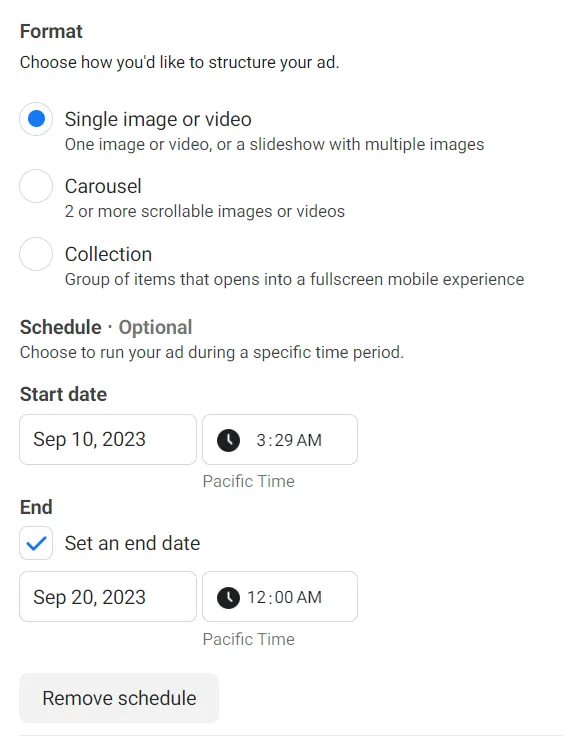
Budget scheduling is a new feature that allows advertisers to schedule budget changes in advance, based on periods when higher sales opportunities are anticipated, eliminating the need for manual adjustments. Starting in early Q4 2023, it will be possible to set dates, duration, and either 'increase daily budget by percentage' or 'increase daily budget by value amount. Available for both manual and automated campaigns like Advantage+ shopping campaigns. (source)

Meta Ads Manager now allows users to create Reminder Ads, allowing people to click on the ad to be reminded of an upcoming event. Users can select a scheduled event or create a new one, add media, text, event details, and set start and end times. The ad features a 'Remind me' call to action. The ad can be delivered to Instagram Feed and Stories, aiming to show it to more likely event setters. (source)
Benchmark reports
Meta has introduced 'Benchmark reports' in its Ads Reporting feature, providing insights into the performance of your ad set compared to similar businesses. The report uses the Industry Peer set category to display 'peers' data, which can be edited if needed. Users can access personalized insights by visiting Business Manager and selecting Ads Reporting, which includes Benchmark reports, Advantage+ shopping ad reports, and Messaging campaign reports. (source)
Facebook is introducing a feature that enables users to separate their personal and professional profiles and create a dedicated work profile. The feature seeks to make life easier for social media managers with personalised feeds for each user and no need to log in and out. With additional profiles, Meta issues a warning against misrepresentation and impersonation. (source)
Advantage+ shopping campaigns now offer optimization for value, allowing ads to be shown to those likely to make higher value purchases. Users can also set a desired ROAS goal to maintain an average ROAS. To begin, select the Sales campaign objective and set the Performance goal to 'Maximize value of conversions'. (source)
Facebook Ads has removed the 'Detailed Targeting Expansion' option for 'Traffic' objective campaigns, replacing it with 'Advantage detailed targeting'. This means users can no longer choose to expand audiences based on Detailed Targeting for Traffic campaigns. Meta may reach a broader group than defined in detailed targeting selections. Advantage detailed targeting is implemented when it could improve performance. This change was already forced when using conversion-based objectives like Leads and Sales. (source)
Starting now, you have the capability to enhance your feeds with Performance Max and Google Shopping product statistics. This allows you to segment products based on their performance in Google Ads.
See Knowledge base for more information.
New notifications will alert users if no updates have occurred in the last 24 hours. This feature will help ensure that your products remain up to date. This notification is enabled by default.
